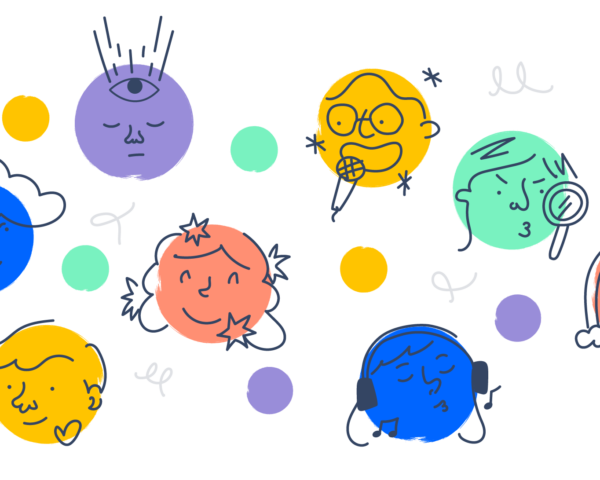Working with introverts can be frustrating for people who are naturally outgoing. For them, being around people is energizing. For introverts, it’s draining – especially in the workplace.
It’s also challenging for us introverts to encounter so many different personalities at work, many of whom are extroverted. I often find myself thinking, “How do these people think so fast?” And, “How did they know exactly what to say on the spot?”
What’s an introvert?
The basic dictionary definition – a shy, reticent person – only scratches the surface of what this particular orientation to the world means. In reality, when thinking of introversion vs. extroversion, there’s a spectrum with shades of difference. Some articles talk about four kinds of introversion, for example. Typically, though, there are certain characteristics that most introverts (and extroverts) relate to. And being an introvert (a certain kind, at least) doesn’t necessarily mean you’re not social at all. It can just mean that after social interactions, especially big ones like parties, many introverts desire time alone to recharge. Many extroverts, by contrast, desire even more social interaction.
But me, I think of myself as a true introvert. (The way I define it, that is.) I prefer listening to talking. I become overwhelmed by large crowds. I have few friends, but they are close ones. I don’t mind being alone, even at movies or restaurants. I’m happiest curled up at home on a couch with a book, a cat (or three), possibly with my boyfriend.
I’ve learned to adapt because I’ve had to. Because, as I said above, I often find myself among people that aren’t as introverted as me, particularly at work. What many people with more social personalities don’t realize, though, is that they can adapt as well. That is to say, maybe if they knew more about how to approach, interact, and work with me there’d be better understanding.
So, while I can’t speak for all the world’s introverts, I can share some small changes that have helped me contribute more fully at work. I hope they help other introverts, too, and extroverts who work with introverts.
Introverts often require time to process
“People who prefer quieter, more minimally stimulating environments.” That’s how Susan Cain, author of the book Quiet: The Power of Introverts in a World That Can’t Stop Talking, defines introverts.
I’m often unable to think or speak clearly on the spot, especially in stimulating environments like the workplace. When pressured to do so, I become extremely anxious. I need some time to think things through before responding or sharing ideas. This is common among introverts like me.
Vague, agenda-less meeting invitations strike terror in my heart. And really, they should scare anyone. How’s a person supposed to know if the meeting will be valuable, or just 30 minutes of your time you’ll never get back? Introverts and extroverts alike are fully justified in asking for more information before they accept, or declining altogether. Both of which I find very uncomfortable.
If there’s background reading for the meeting, I greatly appreciate when it’s shared in advance so I have time to digest it. The Amazon method of providing a few minutes at the beginning of the meeting for some pre-discussion reading and note-taking is a good alternative. Without time to absorb the context, introverts tend to feel ambushed. Like, “Why am I here? What’s going on? Is it bad? Good? Eeep!”
Tip
In meeting invites, include a note saying what will be discussed and what decisions will be made. Share docs and pre-reading in advance.
I find it unsettling to have to interrupt the more talkative people at work, so I usually don’t. Instead, I will send written feedback following the meeting, or perhaps schedule a follow-up meeting with a smaller group so my questions and input can be heard.
Not all introverts will do this. And it’s certainly less time-efficient. So I encourage reserving time during and at the end of the meeting for questions and thoughts from those who haven’t been heard yet. You don’t need to call on the quieter people – that puts them on the spot. Just hold space for them and trust they’ll speak up if they have something to add.
Socializing with introverts at work
Social events are taxing. I’m usually “The Girl at the Party Who Spends Her Whole Time With the Pets” or “She Who Takes the Thanksgiving Feast and Runs Away With It to the Kitchen.” It’s not that I don’t want to participate. And I won’t let my introverted personality outweigh my desire for turkey. But I often need to decompress for a few minutes here and there.
At work, I love it when the focus of social events is something other than “just being social.” That feels scary and forced. My mind has nothing to focus on other than, “What amazingly witty piece of conversation am I supposed to change people’s lives with next?”
Instead, creating workplace social events around a class, movie, video game (yes please!), bowling… anything of that nature puts me (and introverts like me) at ease. That way, any conversation can flow naturally.
Tip
Plan an activity as the central focus of office social events, rather than just open-ended get-togethers.
Celebrating the introverts in your workplace
I’ll never forget a moment during our sorority’s rush planning (introvert in a sorority – that’s a whole different story). The consultant working with us said, “I always look to Season. If she’s on board, then I know we’re good to go.” To be regarded as thoughtful – as someone who wouldn’t gloss over concerns for the sake of just getting on with it – was really cool.
It’s easy to feel like you’re a lesser human being for not having the right words at the right time. Or for needing a few minutes to think. Or for feeling like the world is moving past you at breakneck speed.
I encourage my fellow introverts to celebrate the ability to slow down and think in a fast-paced world. Celebrate truly listening to people so they can be heard. Celebrate understanding the intricacies of problems, and coming up with a meticulously thought-out solution. Celebrate being over-prepared, thinking too much, being excited and anxious. Celebrate being someone who people look to for understanding.
In other words: celebrate being yourself. It’s okay that you process the world a bit differently than others. There’s no need to feel bad or to apologize for it. In fact, it’s a gift. That’s why it’s so important to let others know more about you and how to work with you.
I know, sometimes introverts like me can be frustrating. We’re sometimes perceived as slow or anti-social. Sometimes we ask too many questions, and need too much time to think. But, these tendencies are also what make introverts valuable. When you’re tackling a problem as a group, it helps to have different personalities and ways of thinking brought to bear on it because you’ll understand the problem more fully and end up with better solutions.
And I think most extroverts get that. They understand the value in our quieter, methodical personality. So let’s take time to work with each other in a way that makes us all more effective.





 )
) 








































